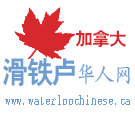 |
|
As the trade war started by the United States continues to unfold, it is becoming increasingly clear that Washington has underestimated the strength and adaptability of China's economy, and has overlooked the brunt of the tariffs that will be borne by U.S. consumers and businesses — a miscalculation that has led economists to believe that the White House's tariff strategy is destined to fail. Against this backdrop, China is doubling down on policies designed to reinforce the country's role as a stabilizing force in global trade and economic development. The recently concluded two sessions — the annual meetings in Beijing of the country's top legislative and political advisory bodies — laid out a road map that is going "to get China's economy on a stable, sustainable growth trajectory", said Chen Wenling, a senior economist. "By doing so, China aims to establish itself as a stabilizing force within the world economy, serving as a reliable partner for global trade and development aspirations," said Chen, former chief economist at the China Center for International Economic Exchanges. Stefan Angrick, senior economist at Moody's Analytics, said the main threat to the global economy now is the uncertainty created by U.S. economic policy changes. "A 20 percent tariff hike on Chinese goods is just the start," Angrick said. "Steel and aluminum now face a 25 percent duty, with tariffs on copper and lumber under consideration. Washington is also weighing new tariffs on the European Union and allies in Asia, while vowing to eliminate nonreciprocal trading arrangements." Chen said that Washington "essentially hates all economies that have a trade surplus with it", adding that while disregarding the inherent laws of international trade, the White House has tried to resort to using tariffs as a weapon to eliminate these trade deficits. This is nothing but a "stone-age mentality", she added. "This approach is fraught with flaws and is unlikely to deliver the promised economic boon the White House expected, including the return of businesses and manufacturing to U.S. shores," she said. The global economy, Chen added, is highly interconnected, and companies have made strategic decisions to locate their operations and supply chains based on factors such as cost, efficiency and access to markets. "Tariffs alone are unlikely to reverse these entrenched global patterns, as the underlying economic incentives remain unchanged," she said. "This strategy is more likely to harm U.S. consumers and businesses, as well as the country's overall competitiveness on the world stage." The Michigan Consumer Sentiment Index, released by the University of Michigan, plummeted to 57.9 in March, the lowest level since November 2022, indicating growing pessimism among U.S. consumers amid worries that the sweeping tariffs would boost prices and undercut the economy. "Many consumers cited the high level of uncertainty around policy and other economic factors," said Joanne Hsu, director of consumer surveys at the University of Michigan's Institute for Social Research. "Frequent gyrations in economic policies make it very difficult for consumers to plan for the future, regardless of one's policy preferences." U.S. consumers' 12-month expectations for inflation jumped to 4.9 percent, the highest level since November 2022, from 4.3 percent in February, according to the surveys. During Joe Biden's presidency, the U.S. inflation rate reached a concerning peak of 9.1 percent in mid-2022, a development that has been partly attributed to the imposition of additional tariffs on certain countries. According to Chen, the senior economist, "the Trump administration's blanket approach to tariff imposition across a broader range of trading partners, if continued, could potentially drive the U.S. inflation rate into the double digits". The increasing anticipation of a high level of inflation might leave the U.S. Federal Reserve few choices but to aggressively raise interest rates, which in turn would likely exacerbate the fiscal deficit and debt burden of the U.S. government, Chen added. "The tariff policies championed by the Trump administration may not 'Make America Great Again'," she said. "Instead, they risk ushering in a period of economic downturn." Yao Yang, director of Peking University's China Center for Economic Research, said, "Trump is good at cutting deals, but he may soon realize that welcoming Chinese investment is a much better deal than imposing tariffs on Chinese exports." In the past, China benefited from foreign investment and technologies to develop its manufacturing sector. Today, with one-third of the world's manufacturing capacity, China is ready to contribute to industrial development in other countries, including the U.S., Yao added. |
Powered by Discuz! X3.4 Licensed
© 2001-2023 Discuz! Team.